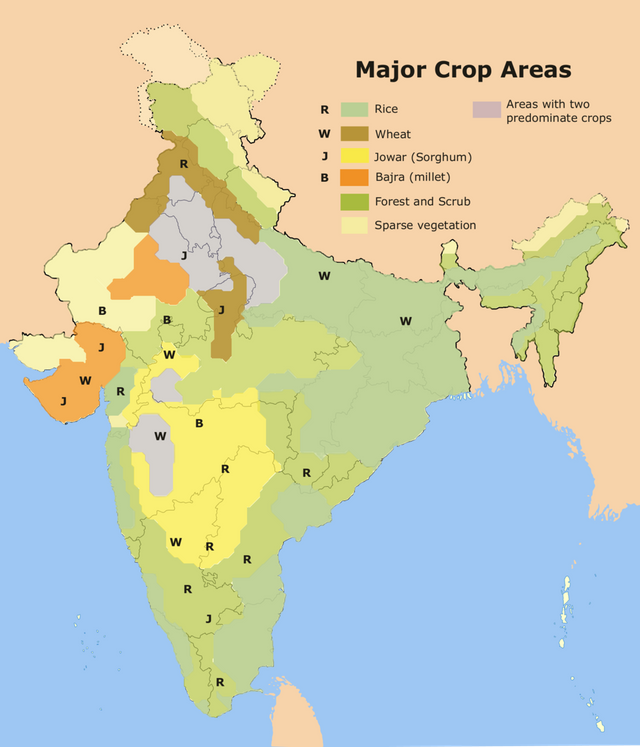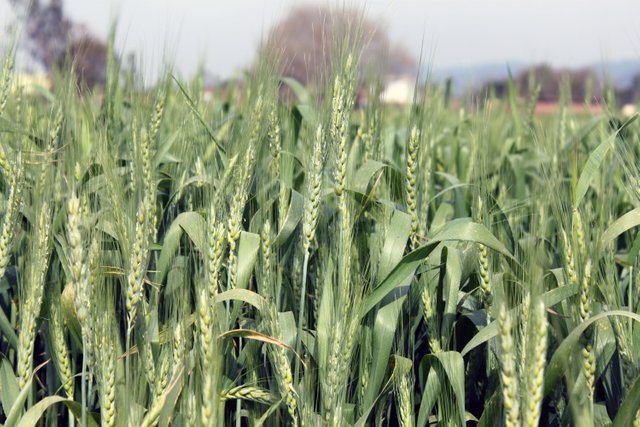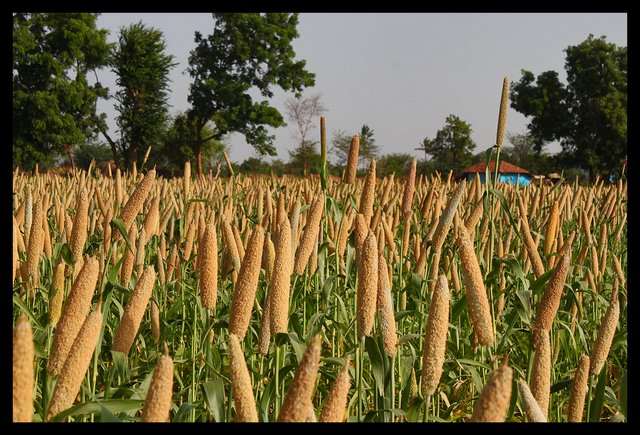Basic Knowledge in Agriculture #25
Greetings my dear friends of Steemit and Steem-Agro
| What are the most planted crop in your country and what are those reasons that aid their survival ( it can be soil type, climate and so on) |
|---|
Today, we're diving into the heart of India's agriculture and discovering the major crops that play a vital role in shaping the country's landscape.
So buckle up for an engaging journey into the world of rice, wheat, millets, maize, and pulses.
Rice
Rise first up, we have rice, a staple in many Indian households.
Did you know that India is the second largest producer of rice globally?
After China, of course. Rice is a kharif crop, thriving in elevated temperatures and high humidity. The prime rice producing regions include the plains of the north and northeast, coastal areas and the baltic regions.
Wheat
Wheat Now, let's talk about wheat, the grain that makes chapati and bread. Wheat needs 50 to 75 cm of annual rainfall to flourish. The two main wheat growing zones in India are the ganga satluj plains in the north-west and the black soil region of the Deccan.
Major wheat producing states?
Punjab, Haryana, Uttar Pradesh, Bihar, Rajasthan, and parts of Madhya Pradesh.
Millets
Moving on to millets, Jowar, Bajra, and Ragi. These hardy crops are like the unsung heroes of Indian agriculture. Jowar, a rain-fed crop, dances in Maharashtra, Karnataka, Andhra Pradesh, and Madhya Pradesh. Bihar loves sandy and shallow black soils, dominating in states like Rajasthan, Uttar Pradesh, Maharashtra,Gujarat, and Haryana.
Ragi, on the other hand, thrives on producers being Karnataka, Tamil Nadu, Himachal Pradesh, Uttarakhand, Sikkim, Jharkhand, and Arunachal Pradesh.
Maize
Maize, a kharif crop requiring temperatures between 21 degrees Celsius to 27 degrees Celsius. Maize loves old alluvial soil, and you can find vast fields in Karnataka, Uttar Pradesh, Bihar, Andhra Pradesh, Telangana, and Madhya Pradesh.
Pulses
Wrapping it up with pulses to Urad, Moong, Masoor, and Peace. These leguminous crops not only make delicious dishes but also help restore soil fertility through nitrogen fixation. Other pulse producing states include Madhya Pradesh, Uttar Pradesh, Rajasthan, Maharashtra, and Karnataka.
| Discuss on the Problems of Agriculture in your Country and the causes of these problems. |
|---|
The top 10 problems are faced by farmers in India.
1.The major challenges farmers in India face is lack of access to credit and loans for farming activities.
2.Another problem is the irregularity and unpredictability of weather patterns leading to crop failures and loss of livelihood.
3.Farmers often struggle with limited access to Modern Machinery and Technology hindering their productivity.
4.Many farmers face difficulties in obtaining adequate and timely irrigation facilities resulting in water scarcity for crops five high production costs and low returns on agricultural produce make it challenging for Farmers to sustain their livelihoods.
6.The lack of proper storage facilities and post Harvest infrastructure results in significant post Harvest losses for Farmers.
7.Farmers also face challenges in marketing their produce effectively leading to lower prices and income.
8.The dependence on middlemen and the prevalence of unfair Trade practices often leave Farmers exploited and financially disadvantaged.
9.The absence of proper agricultural Education and Training hampers the adoption of modern farming
techniques by Farmers.
10.Lastly the issue of farmer suicides due to financial distress and inability to repay loans remains a grave concern in India.
| Give solutions to these problems |
|---|
Farmers in achieving higher yields and overall profitability furthermore promoting organic farming practices and sustainable agricultural methods will protect the environment and contribute to the long-term sustainability of farming. Lastly creating farmer producer organizations and Cooperative societies will Empower Farmers by giving them collective bargaining power and better access to resources and markets. In conclusion by implementing these measures we can help mitigate the problems faced by our hardworking Indian farmers and ensure their well-being and prosperity.
Thank you for reading my post.
I would like to invite three fellow Steemians to participate in the contest.
@sabbirakib
@edu-chemist
@chiagoziee



Welcome to steem-agro!
MODs Comment/Recommendation:
Keep Sharing your Thoughts with All of Us
Remember to always share your post on Twitter using these 3 main tags #steem #steemit $steem

Thank you for verifying my post and feedback.
Welcome Dear
X Link
https://x.com/Saha_tweet/status/1909628816387195350